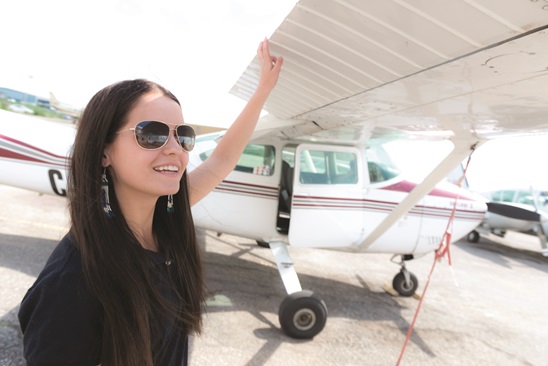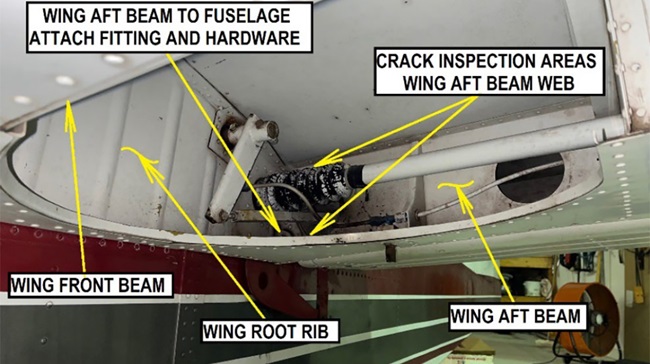
As you prepare for your practical test, you may hear or read stories about other applicants’ checkrides that leave you dreading your own. You may even come across a few people who, in their words, experienced the “checkride from hell.” Bear in mind that the common causal factor to nearly all of these checkride disasters is simply an underprepared applicant. Preparation is the key to success for all checkrides. But let’s say you’ve fully prepared, but you’re thrown a curveball and two people show up to administer the checkride. It means your designated examiner is undergoing an FAA inspector-observed checkride.
If an FAA aviation safety inspector shows up to your checkride, your first impulse might be to run. But when you find your feet too heavy to lift, you begin to wonder: Why is this happening to me?
First of all, it might be helpful to know it isn’t happening to you—it’s happening to the designated pilot examiner (DPE). Why? It’s a routine, required activity the FAA conducts periodically (annually, or sometimes even more often) on each of the DPEs under its jurisdiction. Think of it as a random quality assurance verification check of the DPE’s checkride procedures. In that regard, it is more of a checkride for the DPE. The FAA inspector does not sit in judgment of the applicant. Rather, he or she is there to validate the DPE’s ability to effectively administer the practical test and to spot problem areas and/or discuss ways to improve that DPE’s performance. The inspector’s conclusions are offered to the DPE following the checkride and are always conducted in private, away from the applicant.
FAA inspectors are aware that their presence will naturally elevate the stress felt by the applicant and most aviation safety inspectors do an excellent job of relieving it by explaining their role in the checkride process. But sometimes it is still difficult to ignore that extra set of eyes. To help with that, many inspectors will sit well behind the applicant during the oral exam, where they can still observe the examiner while remaining out of view of the applicant. They are usually silent during the exam, which also helps you to forget they are even there.
When it comes to the flight portion of the practical test, remember to adjust your weight-and-balance computations accordingly before heading out to the airplane. The FAA inspector will sit in a back seat, again to observe the quality and effectiveness of the test administered by the DPE. Think of the inspector as a passenger there to enjoy the ride, and you probably won’t hear a word from him unless it is to point out observed traffic. Remember to brief both the FAA inspector and DPE just as you would any other passengers in your airplane.
From that point forward, the flight portion of the checkride would be exactly as if the inspector were not even there, with the exception that the airplane may feel and perform somewhat differently than you may be used to, because of the extra weight. For that reason, and perhaps even more important because you will be carrying passengers soon anyway when awarded your private pilot certificate, you should take every opportunity to accomplish flight training with an observer (or two) in the back seats—to find out just how differently the airplane handles with the extra passengers. This can be a real eye-opener. I still vividly remember the valuable lessons I learned as a young 16-year-old student about takeoff rotation rates, stall speeds, and weight and balance the day I brought my mom along on a dual cross-country training flight. Priceless!
Depending on the situation, you may or may not receive advance notification of the FAA inspector’s intention to observe the checkride. But in either case, do not panic! This is your checkride, yes. The DPE is there to observe you, and there is no getting around that detail. But remember, the FAA is there to observe the DPE—not you! As in any checkride, come to it well prepared and the rest will take care of itself.


